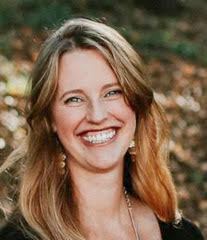|
This post, written by Erin Jantz, originally was published on February 23, 2015, on the ICTG blog. Read Spiritual Direction in the Face of Trauma: Part Two here. One of the joys of being a spiritual director is observing with people how their human spirits and their senses of holiness interact. These unique movements, or faith journeys, greatly affect the way people work and live, and often give us intimate senses of God’s direction and movements in each person’s life. In recent years, as I have walked along with people through their faith journeys, I have discovered a new question for me that I believe is critical to addressing needs of our day. How does God work, and what are individuals’ experiences of holiness, when things go horribly wrong? More than a question of theodicy (i.e., in a world of God’s sovereignty, why do bad things happen?), this question considers spiritual developments amid tragic circumstances. As I research this question I find that excellent scholars can answer what happens in the brain, thoughts, emotions, and body when tragedy strikes, but there are not good answers for what trauma’s impact is on a person’s spirit. This is partly because each person’s experience is so personal, but we know from other disciplines that there are general truths that can provide a foundation for how to approach healing when our perceptions of the world are shattered. This must also be true of healing the soul. As I look to companion people of faith through traumatic experiences, I am flooded with questions:
These questions, and so many more, are being asked by suffering people and those who love them everyday. As spiritual directors we need to be asking these questions, too, and even more questions, to adequately meet the demands of our times. Spiritual directors can be an invaluable help to people seeking God in crisis. Yet to approach those who have suffered traumatic losses of any kind as if they are on similar journeys as people in times of peace would be not only unhelpful, it would be unkind. Spiritual direction in the face of trauma must change. Distinct from other disciplines’ outpourings, including therapy from psychology and knowledge from theology, spiritual direction must have a plan for the short, and mid-term, experiences of survivors, prepared to take on embodied practices and to provide structure and hope. It is the answers to these questions that we are seeking in the spiritual direction program at ICTG. Next month I will share some of the answers that I have found helpful in my search for both lay spiritual directors and clergy to come alongside those who are hurting and be, paraphrasing St. John of the Cross, a voice calling from the unknown saying, “Come this way, I have made it, the path is safe despite the darkness.” Erin Jantz received her Master’s Degree in Spiritual Formation and Soul Care from the Institute for Spiritual Formation. She also holds a B.A. in developmental psychology and has furthered her education with trainings in trauma care from Boston University and intensives with Dr. Bessel Van Der Kolk. She has been practicing spiritual direction since 2012, helped to author ICTG's Spiritual Formation Resource Guide, and also teaches and speaks on a variety of spiritual formation topics. Erin lives in Southern California with her husband and their four marvelous children.
0 Comments
Leave a Reply. |
�
SPIRITUAL DIRECTION BLOG
From 2012-2020, this blog space explored expanding understanding and best practices for holistic health in the context of spiritual direction.
This website serves as a historical mark of work the Institute conducted prior to 2022. This website is no longer updated. Archives
September 2020
Categories
All
|


 RSS Feed
RSS Feed
